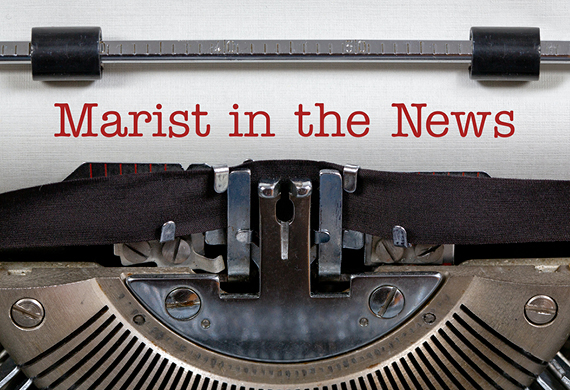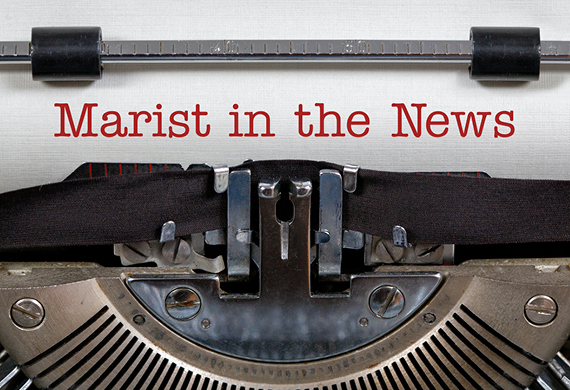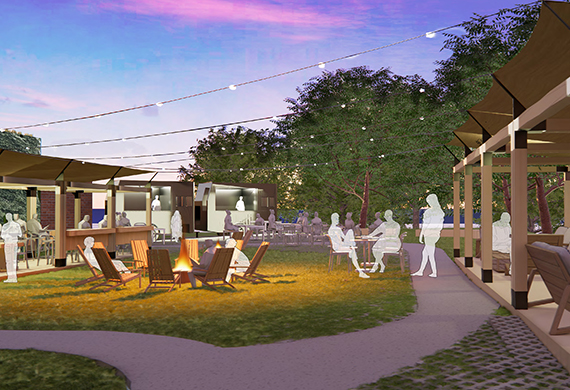Gaming as the Way to Social Change
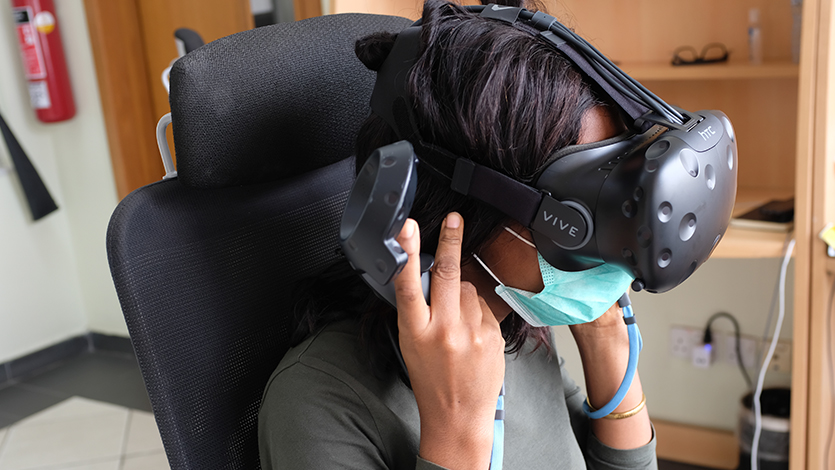
In a new project with Nigeria’s Lagos Business School, Director of Games and Emerging Media Karen (Kat) Schrier shares her expertise on using gaming to support diversity, empathy, and perspective-taking.
September 29, 2020—Associate Professor Karen Schrier has long believed in the social impact of games. She has written extensively about the power of games as teaching tools; her landmark book, Knowledge Games: How Playing Games Can Help Solve Problems, Create Insight, and Make Change explored how games can help solve big problems—even ones like the COVID-19 pandemic. As Director of Marist’s nationally recognized Games and Emerging Media Program, Schrier brings that world view to the classroom as well. Now, the work that she has engaged in with her Marist students will help inform an exciting new project at Nigeria’s Lagos Business School, aimed at growing empathy and compassion between the different ethnic groups in Nigeria, as well as between the major religions: Islam and Christianity.
Changing Hearts, Minds, and Attitudes
Dr. Schrier’s extensive work in researching game development and gaming as engines of social change led to her being selected to serve as a Belfer Fellow with Anti-Defamation League’s (ADL) Center for Technology and Society in 2018. As a Belfer Fellow, Schrier was able to more broadly explore concepts that had long been part of her teaching at Marist. It was this work—and a whitepaper she published—that led Dr. Eugene Ohu, Head of the Department of Organizational Behavior and Human Resource Management at Pan-Atlantic, to Schrier.
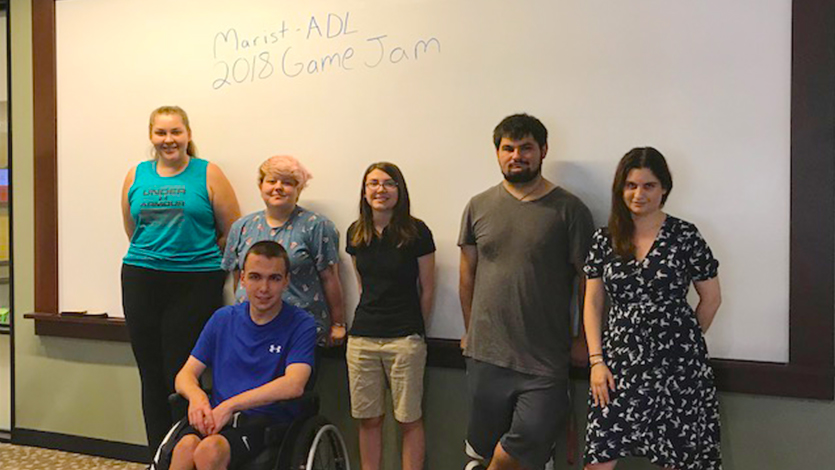
Dr. Karen Schrier (right) with students during a game jam.
The ADL is interested in how gaming may counter (or propagate) bias. Schrier delved into “the question of whether and how games can be used to support positive social change, connectedness, caring, and help reduce bias,” according to the ADL’s website.
“Dr. Schrier caught my attention because of the wonderful work she was doing on using games to change minds, hearts and attitudes. I was particularly attracted by the work she did for the ADL,” said Ohu, who runs a Virtual Human-Computer Interaction Lab at Pan-Atlantic. “Key to this was the game jam concept. I knew what I wanted to achieve, which was to increase empathy and compassion in the target audience, but Schrier’s work showed me practical ways we might implement that.”
Game jams are intensive events where groups get together and work in teams to develop games in a short time period, such as over a week or even 13 hours. “The goal is to create a raw prototype and get something out there quickly,” Dr. Schrier explained. During her fellowship, Dr. Schrier worked with the Global Game Jam to host game jams at sites across the country (including one at Marist, which included 70 students who created over 25 games) and internationally, which tested the efficacy of the game jam’s design and framework and its impact on game developers.
Ohu secured grant funding from the Templeton Foundation which seeks to explore “whether the methods of science might be harnessed to make similar progress in understanding the deepest and most perplexing questions facing humankind,” according to their website. Dr. Schrier is serving as a co-investigator on the grant.
Applying Concepts
Dr. Schrier has worked the concepts of empathy and compassion into her classes at Marist. “In my Ethics and Gaming course, the students are creating games that encourage perspective taking, character education, and ethical thinking,” Schrier explained. “Playing with others, or playing as a character in a game may help you to take on new perspectives. It’s similar to reading a book or watching a movie in that helps you to get a glimpse into other people’s stories and how they live. However, through games, we may also be making choices for characters and actively exploring others’ stories.”
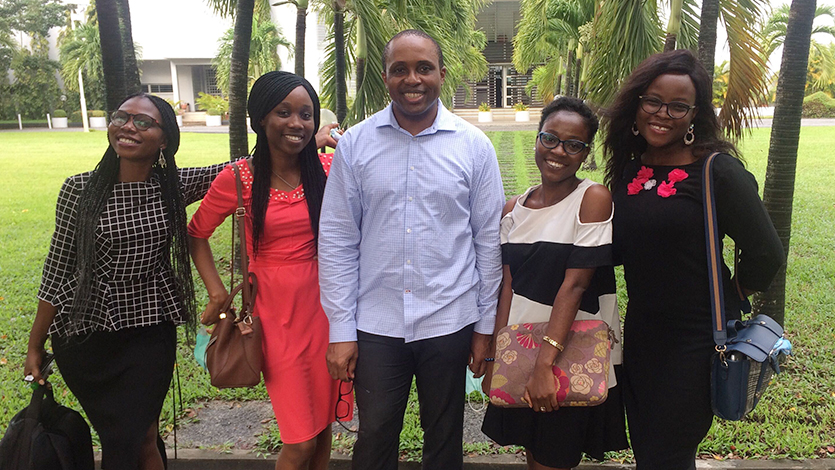
Dr. Eugene Ohu (center) and members of LBS’s Virtual Reality Lab.
This perfectly aligns with what Dr. Ohu is hoping to achieve. “Our short-term goal for this project is to explore the immersive and perspective-taking characteristics of virtual reality (VR) to help teenagers grow in empathy and compassion; character traits that are needed in a diverse country like Nigeria, but more importantly in a multicultural world,” he explained. “We will use VR in game jam and game play settings to have children take the perspectives of ethnic groups different from theirs, to appreciate their identity and share in their sufferings. This can hopefully enrich the civics and social studies curriculum of secondary schools.”
Dr. Schrier concurs that the work at Lagos Business School has the potential to be far-reaching. “We are helping to connect Nigerian youth with media experts to work on projects together, which is very exciting. But, we are also giving Nigerian youth tools and expertise so they can make games and VR experiences in the future.”
The project is underway now and will continue through 2022.

